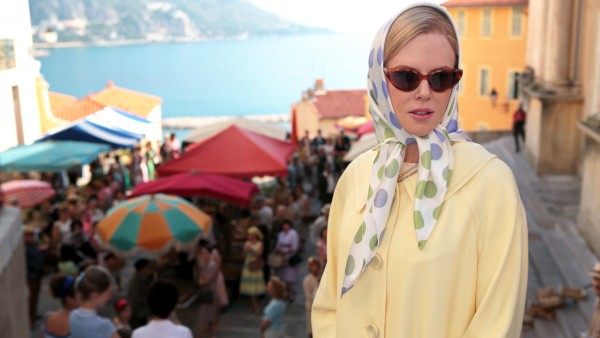You have no items in your cart. Want to get some nice things?
Go shoppingGrace of Monaco should have been a fascinating portrayal of Hollywood’s princess. So why was it received so badly?

Grace of Monaco should have been an impressive opening to the Cannes Film Festival, with all the potential for an intriguing portrayal of Princess Grace (Nicole Kidman) and her marriage to Prince Rainier III of Monaco (Tim Roth), directed by award-winning Frenchman Olivier Dahan, whose Edith Piaf biopic La Vie En Rose was a commercial and box office hit.
However, major conflicts were reported between Dahan and US producer Harvey Weinstein, who threatened drastic editorial cuts and delayed the film’s release in the US. Furthermore, the film so angered the Royal family of Monaco they refused to attend the Cannes festival. Best of all, it has attracted some side-splittingly scathing reviews: The Guardian‘s Mark Kermode gave it a measly one star out of five, asking “Surely no one makes a movie this bad by accident?” whilst Peter Bradshaw called it “a breathtaking catastrophe.” Robbie Collin of The Telegraph also gave it one star, calling it a “fantastically silly melodrama.” So why did it receive such an appalling reaction and provoke so much controversy – surely it can’t have been that bad?
Although not a historically accurate film, Dahon faithfully reproduces the spirit of the 1960’s using celluloid film, anamorphic lenses and “Vaseline smear” to vividly recreate the early 60’s technicolour widescreen. The film shimmers with gorgeous costumes and lush sets, filmed on location in Monaco and the South of France, against the glittering backdrop of the Cote D’Azur. The dramatic opening scene with Princess Grace gripping the wheel of her sports car as it careers around the hairpin bends high above Monaco turns out to be a false start. It’s the film itself that takes a nose-dive off the cliff, taking all the lavish production work with it.
The film is set in 1961, six years into the marriage of Grace Kelly to Prince Rainier III of Monaco. Royal life evidently hasn’t turned out to be the fairy tale Grace imagined, as she subtly states at the film’s opening: “the idea of my life as a fairy tale is itself a fairy tale.” Dahan had plenty of juicy material (potentially a lot more embarrassing to the Monaco Royal Family) to show us just how far from a fairy tale Grace’s marriage really was. Biographers claim that Rainier had a violent temper and there was infidelity in the marriage on both sides, Grace known as “sexually adventurous”, having had a scandalous affair with married co-star Ray Milland on the set of Dial M For Murder. Dahan chose to ignore these aspects, spending the first half of the film examining how Grace is forced to give up life as an actress.
Feeling neglected and depressed, she increasingly leans on her confidante, Father Francis Tucker (Frank Langella). “I don’t know how I’m going to keep living with him, I don’t know how I’m going to spend the rest of my life in this place where I can’t be me!” Grace confides, to which he replies “Who is that?” I think we found ourselves asking the same question, as Kidman looks elegantly fitting in the part but not much else, with numerous wardrobe changes designed by Gigi Lepage, based upon Grace of Monaco’s real outfits and fashion archives.
In the second half of the film Dahan emphasises the hugely boring political standoff between Monaco and the French president, Charles de Gaulle (André Penvern) who wants to force the wealthy citizens of Monaco to pay tax to France. Dahan builds it up to such an extent it threatens to eclipse the Cuban Missile Crisis, when the real drama is occurring in the marriage. Rainier insists that Monaco is a sovereign nation and refuses to pay, gathering his all-male cronies around a TV to chain smoke and plot their next move. The French launch a trade blockade, until Grace crosses the border with a basket of food, all her loveliness in white gloves and ribboned hat easing the tension. Her transformation from actress to Royal Princess turns her into a self-sacrificing Diana figure, rising above her entrapment in a miserable marriage. The film seems to annoyingly martyr her for giving up her career and independence while making nothing of the gender politics of the time, which would have given the film some much-needed depth.
Hitchcock (played charismatically, if not over-the-top, by Roger Ashton-Griffiths) makes an appearance to hand deliver his offer to Grace to act in Marnie, bumbling along the parapets of the castle close on the heels of poker-faced lady in waiting, Madge Tivey-Faucon (Parker Posey) who watches Grace’s every move like a menacing Mrs Danvers from Rebecca. Grace feverishly flicks through the script in bed, only to wrap her silk dressing gown around her shoulders and ripple down corridors to face fierce opposition by her husband. Sparks inevitably fly with a fireworks scene in the background echoing To Catch A Thief.
Dahan’s attempt at producing a complex, multi-layered film amounts to throwing confusing sub-plots into the mix, such as Grace exposing a conspiracy between palace traitors and double agents plotting in the woods. Shifting gear awkwardly from period drama and soap opera to spy movie via political thriller with Hitchcock lurking in the background, Dahan leaves the film with a severe identity crisis.
Arash Amel’s script is over-simplistic and contrived, stalling through a series of melodramatic events. At points it becomes so ridiculous it descends into farce. In a scene reminiscent of My Fair Lady, Grace turns to the Count Fernando D’Aillieres (Derek Jacobi) to learn all she can about French history and politics. The count, complete with a live parrot, swiftly rolls out a French tutor and deportment coach, the parrot mimicking Grace in the background. Grace, we are told, lacks confidence and needs acting lessons (even though she is an Academy Award-winning actress) prompting annoying close-ups of Kidman’s botox-frozen face. She will learn to speak fluent French, act like royalty and go to the ball. And go to the ball she does: in fact, she manipulates the whole event to become a political victory in which she gives a tearful speech about how she doesn’t much care for men with guns trying to snatch her tiny little kingdom away, producing a stirring round of applause and single-handedly winning over grumpy old de Gaulle.
A scene in the original script apparently showed Prince Rainier playing a much larger role in successfully defusing the crisis, but Dahan cut it and refused to reinstate it, even though this would have helped to appease the enraged Monegasque Royal Family who denounced the film as “a misappropriation of history for commercial purposes”, saying that it should never have been made, breaking a long standing Hollywood taboo about exposing the truth of the marriage.
Unfortunately we see nothing of Grace’s emancipated life before her incarceration in the castle of Monaco, which would have made a far more interesting story than the tiff with de Gaulle. Scenes from her acting in the Hitchcock films associated with Monaco would have been far more poignant, such as when she drove the hairpin bends in To Catch A Thief and first saw the gardens of the Monaco principality from the spot where she would plummet to her death.
Ultimately, as a feast for retro clothing addicts and fans of 60’s fashion, Grace Of Monaco would have served better as a cosmetics advert with all those extended close ups of Grace’s dewy face foundation. It’s hard to take anything away from this movie other than all that cigar smoke and testosterone drifting down palace corridors, and the startling revelation that this tiff between Rainier and de Gaulle could have started a war involving the whole of Europe had Grace not swept in, her Swarovski crystal ball gown and royal sash saving the scene. If it’s any consolation, critics have assured us that whilst it is bad, it’s not as bad as the Diana movie. The royal family of Monaco did well to stay at home for this film. I wish I had.

About Nicola Hodges
Nicola Hodges is an English writer living in Zürich, Switzerland. She writes short stories, poetry and non fiction and her longer pieces of work are waiting in an orderly queue for her time and attention. Her latest short story has been published in the September/October double issue of "Ellery Queen Mystery Magazine." Find out more about her here: https://nicolahodges.weebly.com





What a fantastic review. Reading this makes up for the shortcomings of the film.
‘Shifting gear awkwardly from period drama and soap opera to spy movie via political thriller with Hitchcock lurking in the background, Dahan leaves the film with a severe identity crisis.’
Wonderful. A smooth and serene review with cleverly blended humour. Like a light, creamy desert that one is delighted to find has been laced with brandy.
I look forward to reading Nicola’s next piece of work.